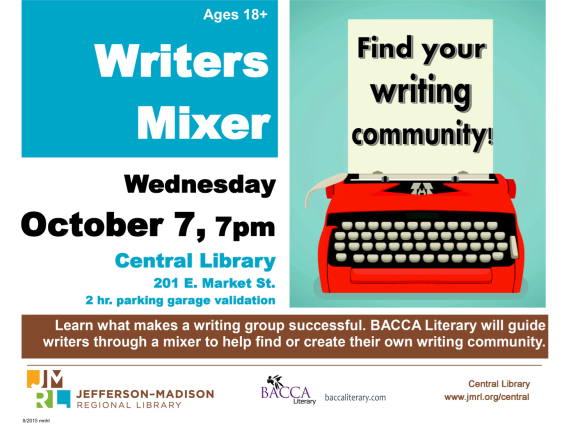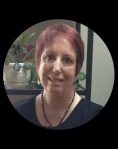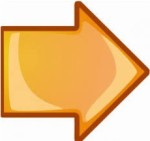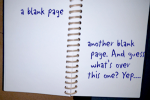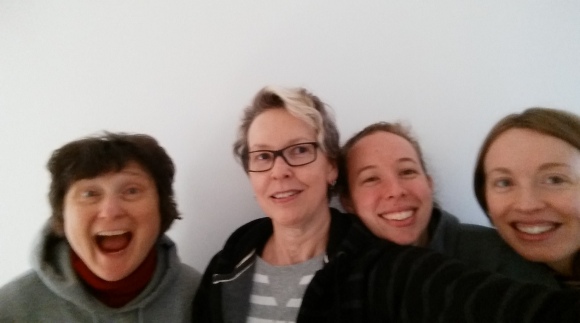This post is by Phyllis A. “Maggie” Duncan, novel and short story author.
If you believe the Facebook memes about the writing life, writers are solitary creatures, shuttered in our writing caves, subsisting on caffeine, and keeping distractions to an utter minimum. To an extent, that’s true, but biological and psychological needs conspire to push us into the non-writing sunshine, where we get inspired to write again.

A key aspect of inspiration for me is my participation in two writing groups.
But, you say, going to writing group meetings takes time away from writing, and what possible good are they, anyway?
My answer: A writing group consists of people who respect each other’s work and who are interested in each member’s success. How do I know this?
I retired six years ago to write for myself rather than Uncle Sam, but, frankly, I would have been content to sit in my office and write only for myself if not for my writers groups.
When I first joined the Staunton/Waynesboro/Augusta Group of Writers (SWAG Writers), our meetings were social gatherings only. We met in a bar—of course; we’re writers—and chatted about what kind of writing we did and what we hoped to achieve. Then, a member had a story accepted for a literary journal, and that prompted me and others to try the whole submission thing.
SWAG was the place where I shared the news of my first acceptance of a story for publication, where I could do readings in a comfortable environment and could argue the efficacy of the Oxford Comma.
Along came National Novel Writers Month and the Shenandoah Valley Wrimos, a Facebook group where we encouraged each other and lamented our lagging word counts.
From that group developed the year-round writers group, Shenandoah Valley Writers. We have online short story discussions, writing sprints, and other craft-related fun. Mostly, however, we celebrate each other’s writing. We share each other’s publishing successes and commiserate over rejections. Though our primary interactions are online, we have occasional in-person get-togethers to talk writing and/or eat muffins, along with consuming large amounts of that writer’s fuel, coffee.
From both of these groups I get validation as a writer, I get encouragement, and, well, I have fun with writing. In short, without my writers groups, I wouldn’t have had anything published (including two recent releases, a novella, My Noble Enemy, and a novel in stories, The Better Spy), wouldn’t have won or placed in any contests, wouldn’t have evolved as a writer. I’d still be sitting in my writing cave, writing, revising, rewriting, and being the only person in the world to read my work.
A writing group challenges you, not merely to write, but to write better, to question your own writing toward the end of making it the best it can be. If you don’t have one, find one or make one and watch your writing blossom.
©Phyllis A. Duncan:
Bio:
 Phyllis Anne Duncan is a retired bureaucrat with an overactive imagination–at least that’s what everyone has told her since she first started making up stories in elementary school prompted by her weekly list of spelling words.
Phyllis Anne Duncan is a retired bureaucrat with an overactive imagination–at least that’s what everyone has told her since she first started making up stories in elementary school prompted by her weekly list of spelling words.
A commercial pilot and former FAA safety official, she lives and writes historical thrillers in the Shenandoah Valley of Virginia. A graduate of Madison College (now James Madison University), she has degrees in history and political science. Her love of politics continues to this day.
Her first print collection of short stories was the 2000 paperback, Rarely Well Behaved, which, in 2012, became two separate, reissued books, Blood Vengeance and Fences. In December 2012, she published Spy Flash, a collection of espionage flash fiction stories. In 2015, a novella, My Noble Enemy, and a novel in stories, The Better Spy, were published.
Other short stories have appeared in eFiction Magazine in 2011 and 2012; in the 2013 Blue Ridge Anthology; and in the 2013 1 x 50 x 100 Anthology, a collection of 100-word flash fiction; in the 2014 Skyline Anthology. A short story, “Marakata,” submitted for WriterHouse’s 5th Anniversary Short Story Contest, won third place. Her short story “Man on Fire” was a finalist in the Press53 AWP Flash Fiction contest and later published in Prime Number Magazine. A short play, “Yo’ Momma,” won the Ampersand Arts Bar Hopping Contest and was staged in April 2014 in Staunton, VA. Her story, “Reset,” will appear in the premiere issue of Ink Ribbon Press in 2015. Two contest winning stories, “Dreamtime” and “Blood and Guts,” will appear in the 2016 edition of Skyline.
Ms. Duncan has studied writing at the Gotham Writers Workshop, Writers.com, and Tinker Mountain Writers Workshop. Her freelance, feature articles on life in the Shenandoah Valley appear occasionally in the Staunton News-Leader. She is a member of WriterHouse, James River Writers, Virginia Writers Club (1st Vice President), Blue Ridge Writers, Shenandoah Valley Writers, SWAG (Staunton/Waynesboro/Augusta Group) Writers, and the Association of Writers and Writing Programs.
When not writing, reading, or reviewing books, she takes delight in spoiling her grandchildren.
Websites:
Writing blog: www.unexpectedpaths.com
Author Website: http://phyllisduncan52.wix.com/phyllisaduncanauthor
Social Media:
Facebook Author Page: https://www.facebook.com/Phyllis-Anne-Duncans-Author-Page-136645693053020/timeline/
Twitter: @unspywriter

